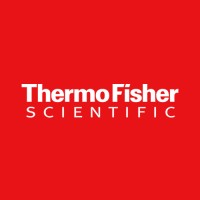Lag-3 / APC / eBioC9B7W (C9B7W)
Product Details
| Description | CD223 (LAG-3) Monoclonal Antibody (eBioC9B7W (C9B7W)), APC, eBioscience™ | |
|---|---|---|
| Conjugate | APC | |
| Clone | eBioC9B7W (C9B7W) | |
| Target Species | Mouse | |
| Applications | FC | |
| Supplier | Thermo Fisher Scientific | |
| Catalog # | Sign in to view product details, citations, and spectra | |
| Size | ||
| Price | ||
| Antigen | ||
| Host | ||
| Isotype |
About Lag-3
Lymphocyte-activation protein 3 belongs to Ig superfamily and contains 4 extracellular Ig-like domains. The LAG3 gene contains 8 exons. The sequence data, exon/intron organization, and chromosomal localization all indicate a close relationship of LAG3 to CD4. [provided by RefSeq, Jul 2008]
Lymphocyte-activation protein 3 belongs to Ig superfamily and contains 4 extracellular Ig-like domains. The LAG3 gene contains 8 exons. The sequence data, exon/intron organization, and chromosomal localization all indicate a close relationship of LAG3 to CD4. [provided by RefSeq, Jul 2008]
About APC
Allophycocyanin (APC) is a fluorescent protein derived from cyanobacteria and red algae and a potent donor fluorophore to create tandem dyes that can be excited off the 633-640 nm laser. APC has an excitation peak at 650 nm and a emission peak at 660 nm.
Allophycocyanin (APC) is a fluorescent protein derived from cyanobacteria and red algae and a potent donor fluorophore to create tandem dyes that can be excited off the 633-640 nm laser. APC has an excitation peak at 650 nm and a emission peak at 660 nm.
Experiment Design Tools
Panel Builders
Looking to design a Microscopy or Flow Cytometry experiment?
Validation References
Reviews & Ratings
| Reviews |
|---|
Looking for more options?
1154 Lag-3 antibodies from over 36 suppliers available with over 106 conjugates.





